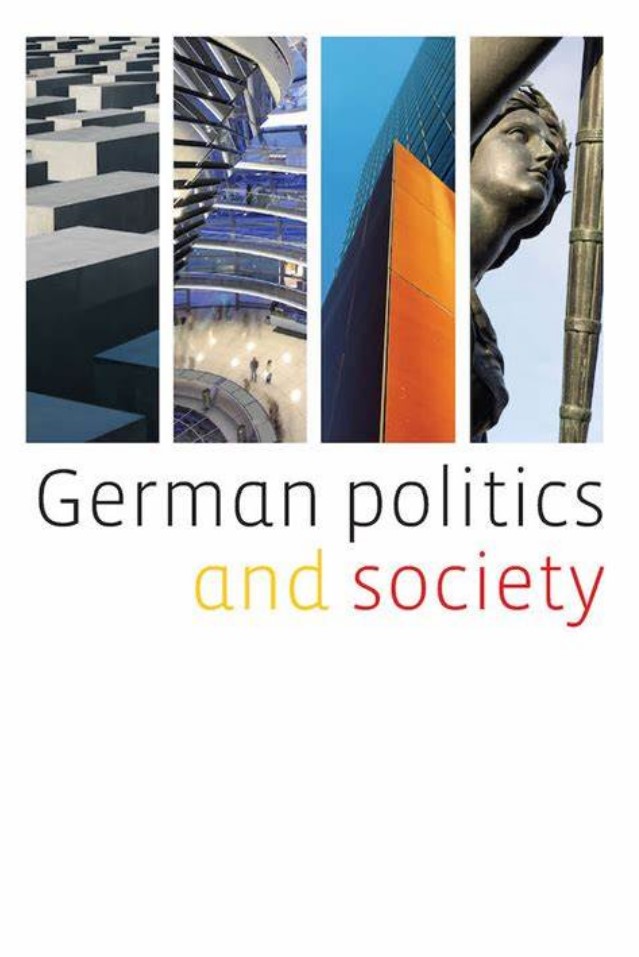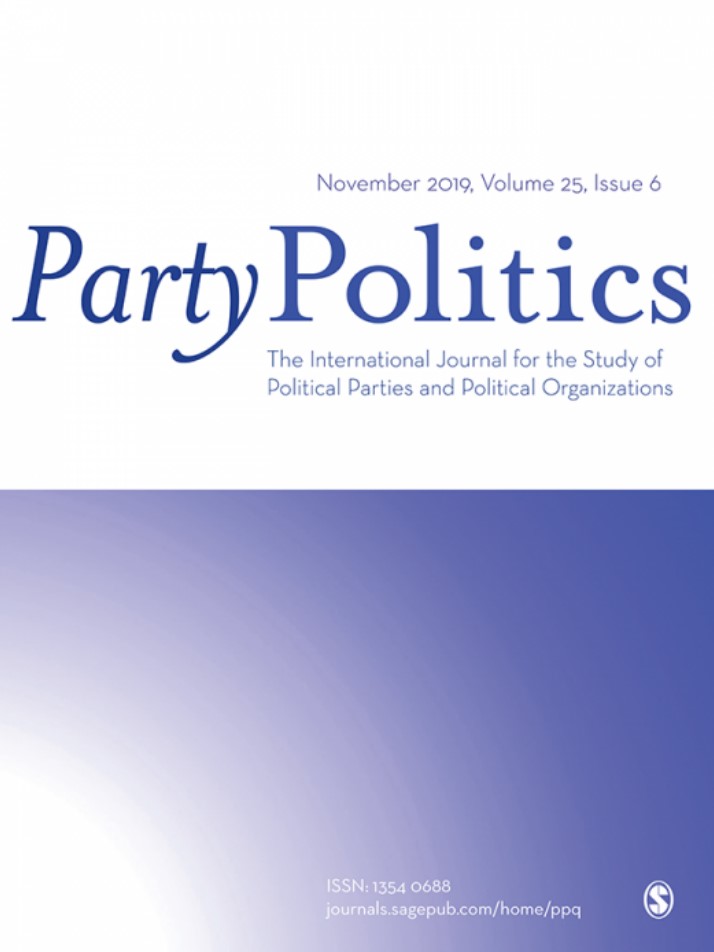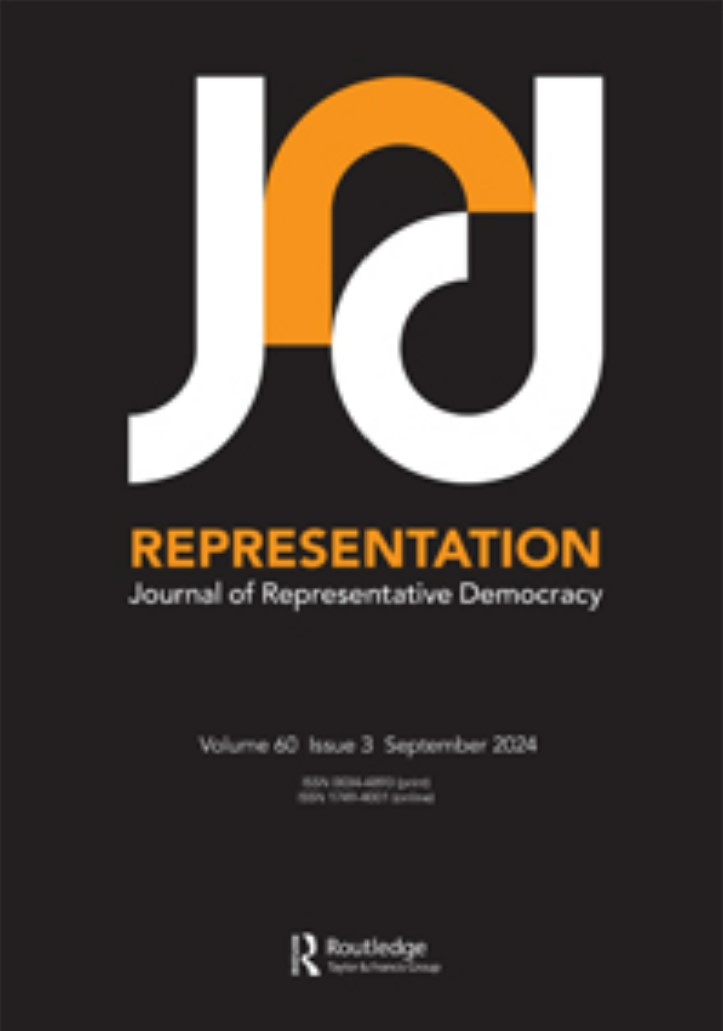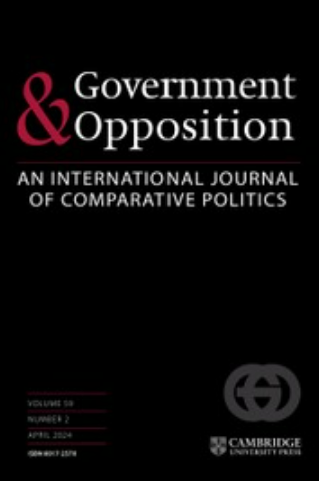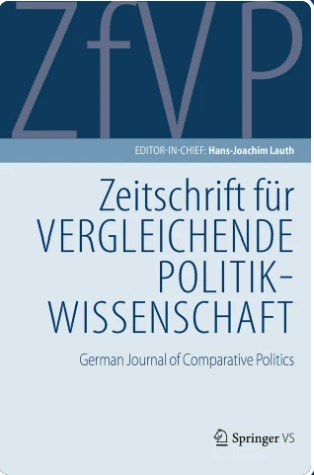Publications
Höhne, Benjamin (2024): The Experimental Catch-up Democratization of Intra-party Leadership Selection in Germany, in: German Politics and Society. 42. Jg., H. 1, S. 61-87.
In many Western democracies, the intra-party selection of party leaders has evolved to become significantly more democratic. In the case of Grmany, a country known for its extraordinarily stable and coronation-like recruitment conditions, the recent changes to the Christian Democratic Union and Social Democratic Party will be described as experimental catch-up democratization. This article focuses on the input dimension of intra-party democracy (IPD). It is based upon research that compares longitudinal data from 2017 to 2022 (when the most significant changes took place) and from 1990 to 2016 (to reveal the traditional selection patterns). The analysis includes the indicators of (more) self-candidacies, (intensified) competition among candidates, decentralization, and (greater) inclusion of the rank-and-file members. By conducting a detailed investigation of these two parties, this article contributes to the international debates on IPD and leadership selection change.
Heinze, Anna-Sophie/Höhne, Benjamin/Wortmann Callejon, Felix (2023): What Drives the Intra-party Democracy of the "Alternative for Germany": Populist Ideology, Low Institutionalisation or Lacking Party Unity?, in: Party Politics, online first, S. 1-13.
The organisation of populist radical right parties significantly shapes their long-term electoral success. Within this party family, great organisational variation can be found, with the "Alternative for Germany" (AfD) representing a least-likely case: in terms of candidate selection (CS), it ranks much higher on democracy scales than the other Bundestag parties. This paper explores the reasons for this high level of intra-party democracy (IPD) by focusing on three explanatory dimensions: ideology, institutionalisation, and party unity. Methodologically, we apply multivariate analyses of representative quantitative data collected among AfD members at CS prior to the 2017 federal election. The results show that high political dissatisfaction and low levels of institutionalisation are important drivers of inclusive CS procedures. Overall, the article provides a deeper understanding of the underlying attitudes for the AfDs inclusive IPD, and offers substantial theoretical and empirical implications for future research.
Höhne, Benjamin/Bouju, Aimie/Landwehr, Dario (2023): Supporting Diversity on Party Lists: Attitudes of German Party Gatekeepers towards Enhancing Immigrant Representation, in: Representation - Journal of Representative Demogracy, 60. Jg., H. 3, S. 395-414.
Previous studies have found that political parties play a crucial role in explaining why certain minoritised groups are largely excluded from the parliamentary sphere. However, researchers still know relatively little about the specific challenges surrounding the selection of immigrant-origin candidates. There is some understanding of the demand dimension, e.g. aspiring migrants' lack of political resources, but not much has been discovered about the selection dimension thus far. This paper provides insights into party gatekeepers' attitudes toward the migration issue in candidate selection. Our work focuses on Germany, where over a quarter of the population has a 'migration background,' but these groups are significantly underrepresented in parliaments. Our findings draw from large-scale survey data collected at seven parties' nomination conferences for the 2017 Bundestag election. We conducted binary-logistical regressions to analyse how selecting party members' attitudes and social characteristics affect their support for balancing state lists. Our results show that the gatekeepers' hierarchical position within their parties (as grassroots or members of the party elite) has no impact on their support for increasing diversity. It is rather gatekeepers' ideological self-positioning, gender and general sensitivity toward politically marginalised groups that have a significant impact on their support for the migration issue.
Höhne, Benjamin (2023): How Democracy Works within a Populist Party: Candidate Selection in the Alternative for Germany, in: Government and Opposition, 58. Jg., H. 3, S. 478-496.
Does the demand for more direct democracy by populist parties have any implications for their internal decision-making? To answer this question, a novel large-scale research project analyses the 2017 candidate selection of all Bundestag parties, including the populist Alternative for Germany. Some 1,334 individual nominations of seven parties are compared using quantitative indicators along three dimensions of intra-party democracy (IPD): competition between aspirants for candidacy, inclusion of members and nomination-related communication. It shows that the AfD is living up to its promise of practising grassroots democracy: in all results it ranks at the top by a wide margin. A new populist organizational model seems to have emerged following neither the classic hierarchical and leader-oriented mode of many other European right-wing populist parties nor the delegate assembly mode typical of German parties. Our further development of IPD concepts, newly elaborated measuring methods and surprising empirical evidence improve the understanding of democratic decision-making in populist parties.
Höhne, Benjamin (2023): The "Männerpartei": Distinctive Type of Organisation Only for Far-right Parties?, in: Zeitschrift für Vergleichende Politikwissenschaft, 17. Jg., S. 107-132.
In populism research, Cas Mudde's comparative concept of the "Männerpartei" is used to describe right-wing populist parties. Based on a quantitative survey of active party members in the run-up to the 2017 federal election (N=7923), this article examines the extent to which this concept can be applied to the "Alternative for Germany" (AfD) and what differences and similarities exist with the six other parties represented in the German Bundestag. While international research on voting behaviour and manifestos of right-wing populist parties has been available for some time, the gender composition of right-wing party organisations is still a research desideratum. Founded in 2013, the AfD is an interesting object of research because it stands out from the traditional appearance of far-right parties, especially due to its inclusive intra-party democracy and its dual leadership, which usually includes a woman. According to the gender analysis of membership, attitudes, and participation, the AfD is different from the other parties. But the compared parties also exhibit masculine characteristics, albeit to a lesser degree. Regarding the gender dimension, a gradual differentiation of the AfD from the other parties appears more meaningful than a distinctive one. Based on the empirical findings, it is proposed to replace the imprecise classification of the "Männerpartei", with a multidimensional typology that can make relational statements about the masculine character of party organisations and their anti-feminism. This comparative party analysis is intended to contribute to both gender studies and party research that focusses on populist party organisations.


